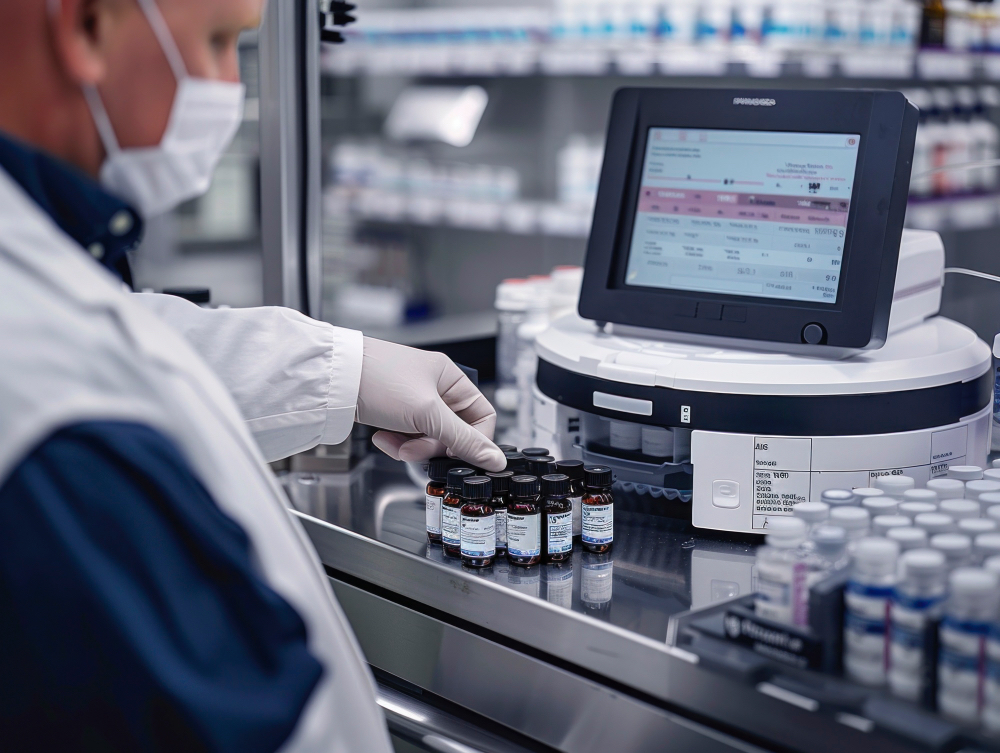New Study Links High-Flavanol Cocoa with Stress Protection for Vascular Health
Recent studies have revealed that a flavanol-rich cocoa drink can help protect the body’s vascular system from the harmful effects of stress, even after consuming high-fat meals. A new study from the University of Birmingham builds on earlier research that explored how food choices during stressful situations can impact cardiovascular health. Specifically, high-fat foods are known to impair vascular function and reduce oxygen delivery to the brain, which can be exacerbated by mental stress. However, the study’s findings suggest that flavanol compounds, abundant in cocoa and green tea, can mitigate these negative effects during periods of stress.
This new research, published in the journal Food and Function on November 18th, investigates whether a high-flavanol cocoa drink can counteract the damaging impact of a fatty meal consumed under stress. The study follows up on previous work that highlighted the negative effects of high-fat foods on vascular function and recovery after stress. By incorporating flavanols, the researchers aimed to determine if this dietary compound could offer vascular protection.
Dr. Catarina Rendeiro, Assistant Professor in Nutritional Sciences at the University of Birmingham and the lead author, explained that people often turn to high-fat foods when stressed, but these foods can worsen vascular health. “In this study, we wanted to explore whether combining a high-flavanol food with a fatty meal could help reverse the negative effects of stress on the body,” she said.
To conduct the study, the researchers had a group of healthy young adults consume a breakfast that included two butter croissants with salted butter, cheddar cheese, and whole milk. Participants then drank either a high-flavanol cocoa drink or a low-flavanol cocoa drink. The high-flavanol cocoa powder was a non-alkalized variety, containing 695 mg of flavanols per serving, while the low-flavanol cocoa powder had been processed to reduce flavanol content to just 5.6 mg per serving. The drinks were mixed with 250 ml of whole milk.
After the meal, participants underwent a period of rest, followed by an eight-minute mental math test designed to induce stress. During the study, the researchers measured forearm blood flow, cardiovascular activity, and prefrontal cortex oxygenation, key indicators of vascular health. They also used Brachial Flow-mediated dilatation (FMD) to assess vascular function, a measure linked to cardiovascular disease risk.
The study revealed significant findings. While the low-flavanol cocoa drink with the fatty meal caused a decline in vascular function (measured by a 1.29% reduction in FMD), the high-flavanol cocoa drink effectively protected vascular function, with improvements in FMD observed 30 and 90 minutes after the stress period. Interestingly, while flavanols helped preserve vascular health, they did not appear to improve brain oxygenation or influence mood during the stressful period.
Dr. Rendeiro concluded that incorporating flavanols into one’s diet could serve as a strategy to mitigate the negative effects of unhealthy food choices, particularly during stressful times. “This research underscores how we can make smarter decisions about what we eat and drink to protect our vascular health during periods of stress,” she said.
The study also suggests practical ways for individuals to increase their flavanol intake. A high-quality cocoa powder is one option, but other sources of flavanols include green and black teas, as well as berries. Research suggests that a daily intake of 400-600 mg of flavanols, achievable through foods like tea and cocoa, can provide cardiovascular benefits.
Professor Jet Veldhuijzen van Zanten, a collaborator on the study, added that the research underscores the importance of small dietary changes, especially for those under high stress. “Incorporating flavanols into a busy lifestyle could be a simple but effective way to protect health in the face of modern stressors,” he remarked.
Commentary by YourDailyFit columnist Alice Winters

This new study from the University of Birmingham offers compelling evidence that flavanols, particularly from minimally processed cocoa, can act as a protective buffer against the vascular damage induced by both stress and high-fat foods. The results highlight a simple but impactful way to enhance cardiovascular health during stressful moments, when people are most likely to make suboptimal dietary choices.
Flavanols, a class of plant-based compounds found in various foods like cocoa, green tea, and berries, have long been touted for their antioxidant and heart-health benefits. The study demonstrates that these compounds can improve vascular function, a critical factor in cardiovascular health. More importantly, the study draws attention to the specific mechanism by which cocoa’s flavanols counteract the negative impact of stress, particularly on vascular health. This builds on a growing body of evidence that cocoa flavanols are not just a luxury indulgence, but a functional food with tangible health benefits.
However, it is important to note that while this study showcases the protective effect of cocoa flavanols against stress-related vascular decline, it does not offer a blanket solution to all stress-induced health issues. The inability of flavanols to affect mood or improve brain oxygenation during the stress period suggests that while flavanols may protect the vascular system, they do not fully mitigate all the physiological impacts of stress.
The study also raises questions about the wider applicability of these findings. For one, the population sample was limited to young, healthy adults. It remains to be seen if these results hold true for individuals with existing health conditions or older populations. Furthermore, while the study recommends achieving a daily intake of 400-600 mg of flavanols, translating this into practical advice for consumers could be tricky. High-quality, minimally processed cocoa powders with high flavanol content are not as prevalent or widely marketed, making it challenging for everyday consumers to reliably include this in their diets. The idea of sourcing flavanols from everyday foods like tea or berries is more realistic but may require significant dietary adjustments.
In terms of practical applications, the concept of incorporating flavanols into stressful lifestyles is appealing, especially for individuals in high-pressure jobs or those prone to emotional eating. For these individuals, small changes, such as swapping sugary snacks for a cup of flavanol-rich cocoa or green tea, could provide cardiovascular benefits without significant lifestyle overhauls. However, as with any emerging research, further studies are needed to explore the long-term effects of sustained flavanol intake and its impact on overall cardiovascular health.
Ultimately, this study offers a hopeful glimpse into how dietary strategies can help mitigate the harmful effects of stress on vascular health, emphasizing the growing importance of functional foods in modern nutrition.



